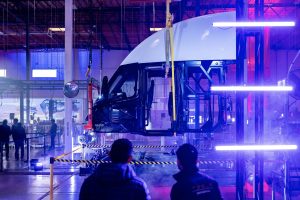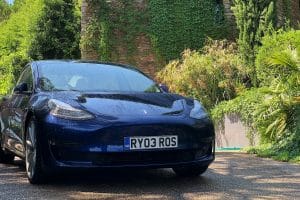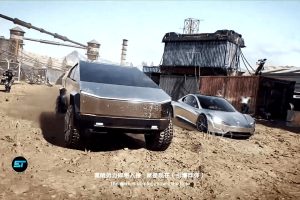- ☀️ Hyundai Motor will use solar energy to power its Georgia Metaplant, which is still under construction.
- 🤝 Hyundai signed a 15-year power purchase agreement with Matrix Renewables to provide up to 147 MW of energy from its Stillhouse Solar Project.
- ⚡ The Stillhouse Solar Project is expected to start commercial operation by October 2025 in Bell County, Texas.
- 📆 The agreement will run from 2025 through 2040, accounting for 70% of the Stillhouse Solar Project’s 210 MW capacity.
- 💡 Hyundai is expected to receive 378 GWh of solar energy annually for its Metaplant in Georgia.
- ⚡ Initially planned as a dedicated EV factory, Hyundai will now also produce hybrids at the Metaplant due to slowing EV sales growth.
- 📈 Despite discussing a slowdown, Hyundai Motor of America reported a 62% year-over-year increase in EV sales in Q1 2024.
- 🚗 Hyundai’s Kia brand has been performing well in the EV market, with the Kia EV9 receiving several awards and recognitions.
In the ever-evolving landscape of automotive manufacturing, sustainability has emerged as a paramount concern. Recognizing the urgent need to reduce their environmental footprint, automakers are actively seeking innovative solutions to power their production facilities with clean, renewable energy sources. At the forefront of this green revolution stands Hyundai Motor, with its ambitious plan to harness the power of the sun to fuel its state-of-the-art Georgia Metaplant.
Harnessing the Power of the Sun
In a bold move towards a more sustainable future, Hyundai Motor has entered into a 15-year power purchase agreement with Spain’s Matrix Renewables. This strategic partnership aims to supply up to 147 MW of clean energy to the South Korean automaker’s highly anticipated Georgia Metaplant, which is currently under construction.
The energy will be sourced from Matrix Renewables’ Stillhouse Solar Project, a vast solar farm expected to commence commercial operations by October 2025 in Bell County, Texas. This cutting-edge facility will boast an impressive 210 MW generation capacity, with Hyundai’s agreement accounting for a staggering 70% of its output.
A Commitment to Sustainability
Hyundai’s decision to power its Georgia Metaplant with solar energy underscores the company’s unwavering commitment to sustainability and environmental stewardship. By tapping into the abundant and renewable resource of solar power, Hyundai is taking a proactive step towards reducing its carbon footprint and minimizing the environmental impact of its manufacturing operations.
The agreement promises to deliver a remarkable 378 GWh of clean solar energy annually to the Metaplant, a testament to Hyundai’s dedication to embracing eco-friendly practices on a grand scale. This pioneering initiative sets a powerful example for other automakers to follow, demonstrating that cutting-edge manufacturing can coexist harmoniously with responsible environmental practices.
Adapting to Market Dynamics
While the Georgia Metaplant was initially envisioned as a dedicated facility for electric vehicle (EV) production, Hyundai has shown agility and adaptability in response to shifting market conditions. With reports of slowing EV sales growth, the South Korean automotive giant has made the strategic decision to expand the plant’s capabilities to include the production of hybrid vehicles.
This move not only diversifies Hyundai’s product portfolio but also positions the company to capitalize on the growing demand for hybrid vehicles, which offer a compelling blend of efficiency and versatility. By leveraging the Metaplant’s flexible manufacturing capabilities, Hyundai aims to recover from potential losses stemming from the EV slowdown and maintain a strong foothold in the evolving automotive market.
A Beacon of Success for EVs
Despite the industry’s challenges, Hyundai Motor of America has reported an impressive 62% year-over-year increase in electric vehicle sales during the first quarter of 2024. This remarkable performance serves as a testament to the company’s commitment to delivering innovative and desirable EV models to consumers.
Moreover, Hyundai’s subsidiary brand, Kia, has been making waves in the EV market with its highly acclaimed Kia EV9. This flagship electric vehicle has garnered numerous accolades and recognitions, further solidifying Hyundai Motor Group’s position as a formidable player in the rapidly growing EV segment.
As the world transitions towards a more sustainable future, Hyundai’s embrace of solar energy at its Georgia Metaplant represents a significant milestone in the automotive industry’s journey towards eco-friendly manufacturing. By harnessing the power of the sun and adapting to market dynamics, Hyundai is paving the way for a greener and more responsible future, setting an example for others to follow.





